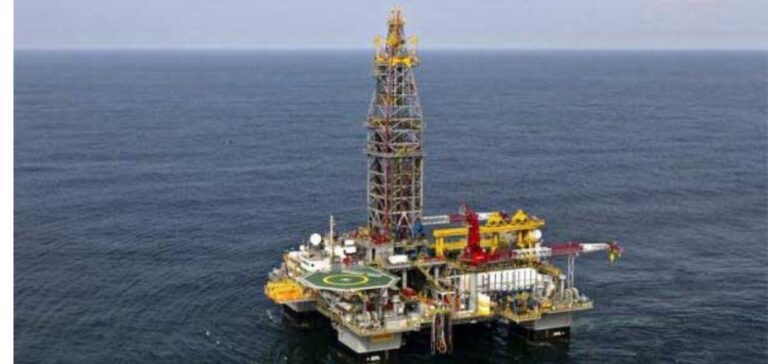Libya and Turkey signed a hydrocarbon exploration agreement in Libyan waters on Monday, three years after reaching a controversial maritime delimitation agreement that had drawn the ire of the European Union (EU).
“We have signed a memorandum of understanding for the exploration of hydrocarbons in Libyan territorial waters as well as on Libyan soil by Turkish-Libyan joint companies,” said the head of Turkish diplomacy Mevlut Cavusoglu, during a press briefing with his Libyan counterpart Najla al-Mangoush.
The memorandum was signed during a visit to Tripoli by a high-level Turkish delegation including the Ministers of Energy, Fatih Dönmez, Defense, Hulusi Akar, and Trade, Mehmet Mus.
This memorandum provides for “developing projects related to the exploration, production and transportation of oil and gas,” explained the spokesman for the government in Tripoli, Mohamed Hamouda, in a Facebook post.
A controversial maritime delimitation agreement had been reached in November 2019 between the former UN-recognized Tripoli-based Government of National Unity (GNA) and the Turkish government.
This agreement allows Ankara to assert rights over large areas in the eastern Mediterranean, much to the chagrin of Greece and the EU.
Mr. Cavusoglu defended this agreement and the memorandum on hydrocarbons. This is “a matter that concerns two sovereign countries, it is a win-win for both and other countries have no right to interfere in these matters,” he said.
Mrs. Mangoush welcomed the “very important” agreement reached on Monday, saying that it served “the interests of both countries”.
– “Illegal” –
In return for the 2019 maritime delimitation agreement, Turkey had helped the Tripoli government repel in June 2020 the offensive led by the forces of eastern strongman Marshal Khalifa Haftar to take the capital.
Ankara had sent military advisers and drones to Libya, which helped inflict a series of defeats at the gates of Tripoli on the forces of Marshal Haftar, supported by Russia and Ankara’s regional rivals, including the United Arab Emirates and Egypt.
Since March, two governments have been fighting for power in Libya, a country that fell into chaos after the uprising that led to the fall of Muammar Gaddafi’s regime in 2011.
The one in Tripoli was established in 2021 as part of a UN-sponsored peace process, while the other is led by former Interior Minister Fathi Bachagha and supported by Field Marshal Haftar’s camp.
The speaker of the eastern-based parliament, Aguila Saleh, an ally of Marshal Haftar, called the agreement signed Monday “illegal and unacceptable.”
The government supported by the eastern camp also rejected it, reserving “the right to resort to the courts” to obtain its cancellation.
Reacting to the memorandum signed on Monday, Greek diplomatic chief Nikos Dendias revealed on Twitter that he and his Egyptian counterpart Sameh Shoukry believed that the Tripoli government lacked “legitimacy” to seal such an agreement.
Mr. Dendias also announced that he would go to Cairo on Sunday for “consultations” on this issue.
Cyprus, Egypt and Greece believe that the 2019 Turkish-Libyan maritime delimitation agreement violates their economic rights in this sector, where the discovery in recent years of vast gas deposits has whetted the appetite of countries in the region.
Egypt and Greece had signed in August 2020 their own agreement on the demarcation of maritime borders in the eastern Mediterranean, as a response to the Turkish-Libyan agreement.





















